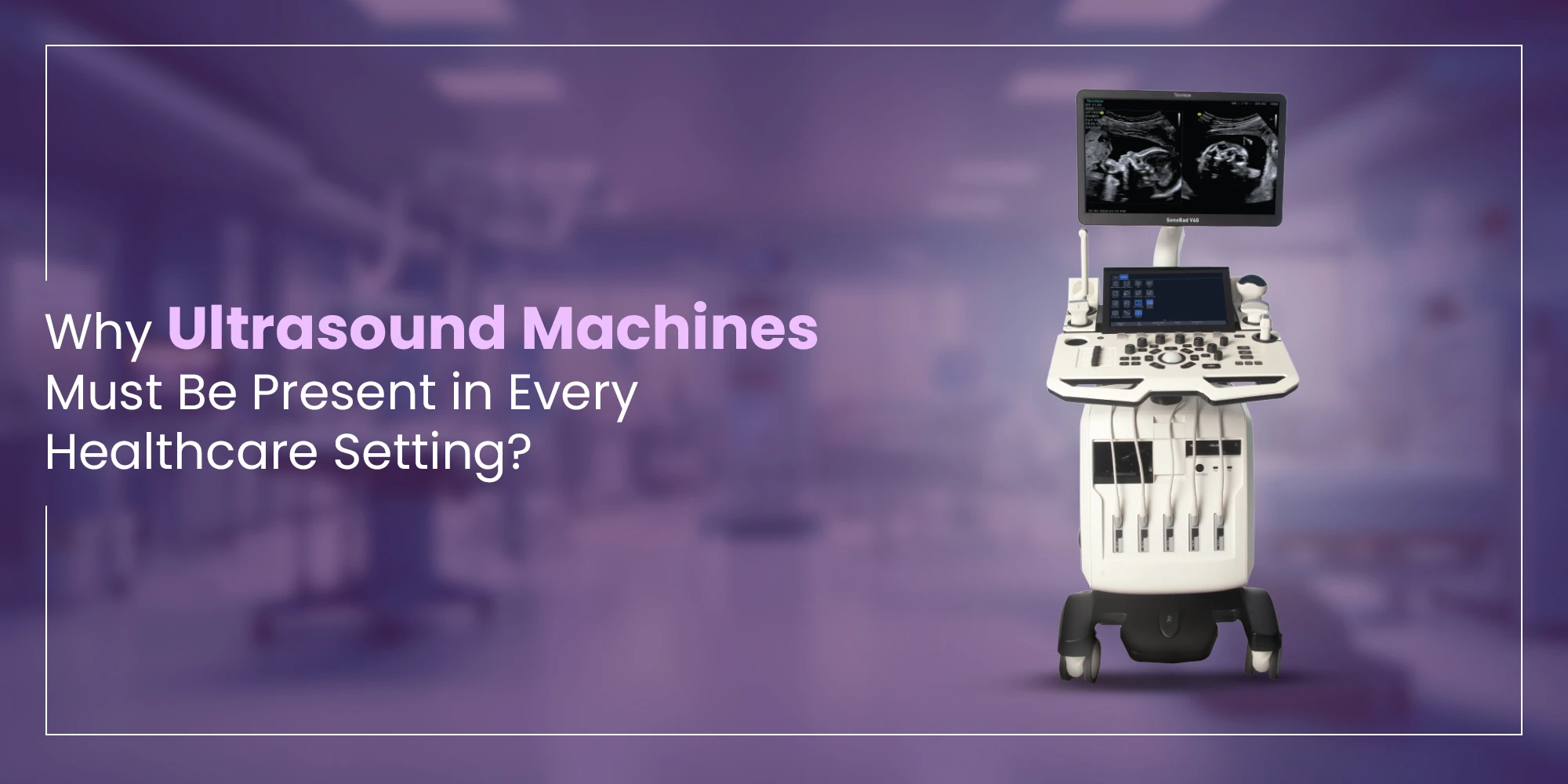In healthcare, early and accurate diagnosis is crucial. Ultrasound machines play a central role in this, detecting a wide array of medical concerns non-invasively. From monitoring fetal development to diagnosing cardiovascular issues, abdominal pain, organ irregularities, and soft tissue abnormalities, these devices are versatile tools that can significantly enhance patient care.
Why Do We Need Ultrasound Machines?
Ultrasound machines use sound waves to create images of the inside of the body, providing real-time, accurate, and detailed visualizations of internal organs, tissues, and blood flow. They are crucial in obstetrics for monitoring pregnancy, aiding in the detection of abnormalities, and ensuring the health of both mother and baby. In cardiology, ultrasounds help diagnose heart conditions by visualizing the heart’s structure and function. These machines are also essential in emergency medicine, where rapid assessment of trauma patients can be life-saving.
Problems Faced by People Without Ultrasound Machines
The absence of ultrasound machines in healthcare settings can lead to significant diagnostic challenges and delays. Without the ability to quickly and accurately visualize internal structures, healthcare providers may struggle to diagnose conditions early, leading to potentially severe consequences for patients. For instance, without ultrasound, pregnant women may not receive timely information about fetal health, and conditions like ectopic pregnancies or fetal abnormalities may go undetected until it is too late for effective intervention. Similarly, patients with cardiovascular issues might face delays in diagnosis, which can be fatal in acute cases.
In rural or under-resourced areas, the lack of ultrasound machines often means that patients must travel long distances to receive proper diagnostic care. This not only adds a financial burden but also delays critical diagnoses and treatments. Moreover, without ultrasound, healthcare providers may have to rely on more invasive and risky diagnostic procedures, increasing the discomfort and potential complications for patients.
Benefits of Having an Ultrasound Machine
- Ultrasound is a non-invasive, painless procedure that does not use ionizing radiation, making it safe for both patients and healthcare providers.
- It provides real-time imaging, which is crucial for guiding procedures such as needle biopsies and monitoring dynamic processes like blood flow.
- Ultrasound machines are relatively cost-effective compared to other imaging modalities like CT or MRI. This makes them an accessible option for a wide range of healthcare settings, including smaller clinics and rural health centers.
- Ultrasound can be used in various medical fields, including obstetrics, gynecology, cardiology, urology, and emergency medicine. This versatility makes it a valuable tool in comprehensive patient care.
- Modern ultrasound machines are often portable, allowing providers to bring diagnostic capabilities to patients’ bedsides, home visits, or remote locations. This flexibility is particularly important in emergency and critical care settings.
- Early and accurate diagnosis through ultrasound can lead to better treatment plans and improved patient outcomes. For instance, detecting and monitoring conditions like gallstones, liver cirrhosis, or kidney stones early can prevent complications and enhance patient quality of life.
The presence of ultrasound machines in every healthcare setting is not just a technological advancement but a necessity. Their ability to provide safe, cost-effective, and versatile diagnostic imaging significantly improves the quality of patient care. Ensuring that ultrasound machines are available in all healthcare facilities, from large hospitals to small clinics, is a critical step toward a more efficient and effective healthcare system.

